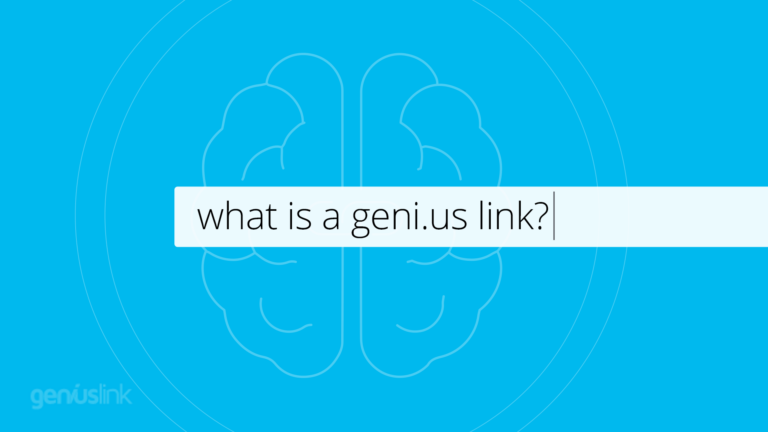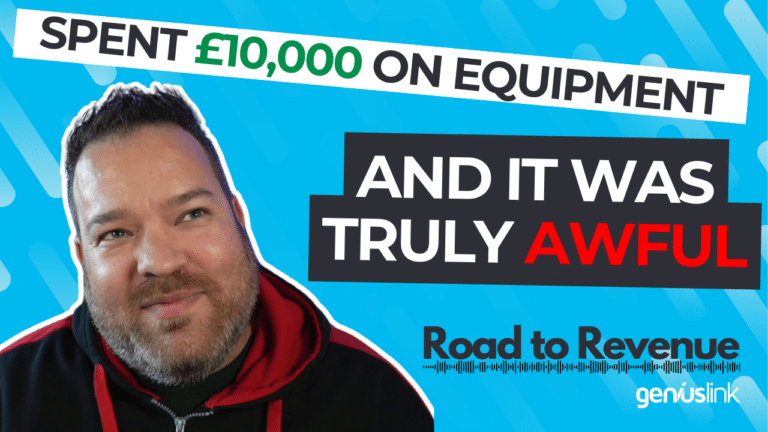Benefits of Affiliate Marketing for Publishers and Content Creators
-
Jesse is a Native Montanan and the co-founder and CEO of Geniuslink - or, as he likes to say, head cheerleader. Before Jesse co-founded Geniuslink, he was a whitewater rafting guide, worked at a sushi restaurant, a skate/snowboard shop, was a professional student, and then became the first Global Manager at Apple for the iTunes Affiliate Program.
- September 13, 2023

Are you a publisher or content creator looking for ways to boost your income?
It’s time to learn about the benefits of affiliate marketing!

Setting The Stage
Affiliate marketing can be a fantastic way to leverage your expertise online to earn additional income.
It’s also rife with unrealistic expectations, hucksters, and a lot of competition.
We wanted to write this article to explore some of the best benefits in affiliate marketing, to shed light on how some of those benefits are a double-edged sword, and to help you avoid some of the most common pitfalls in the industry.
If you read the countless breathless reports on affiliate marketing, you think you’re on the precipice of a goldmine. By these accounts, all you need is a pulse and a social media account and your own private yacht is right around the corner. This content throws big numbers and enticing adjectives your way — you make millions, the industry is collectively worth billions, it’s easy and simple to begin earning all that passive income while you sleep, and so on.
Here at Geniuslink, we don’t perpetuate that unrealistic crap. We’ve always succeeded by giving our clients accurate information and sophisticated, effective tools to improve their affiliate revenue.
So here’s the cold hard truth, based on over a decade of experience. Most new affiliate marketers fail.
They fail because they don’t develop a brand, add value to their audience, or work hard enough at affiliate marketing for a long enough time.
So if you’re looking for a 7 Proven Affiliate Marketing Secrets That Make Me $50k a Month! article, this isn’t for you (and hint: almost all of those kinds of articles, e-books, and courses are just scams to separate you from your money). Remember, TANSTAAFL.
For everyone else that actually wants to take a clear-eyed view at affiliate marketing, let’s get to work.
What is Affiliate Marketing and How Does it Work?
Affiliate marketing is a process by which affiliates earn a commission when they help sell somebody else’s product or service.
Let’s say Jane runs a blog on healthy living. She could use an affiliate link to a pair of Nike shoes that she recommends to her readers. When someone purchases a pair through that link, Jane earns a small commission for helping facilitate the transaction.
Oftentimes affiliate marketing looks like this, where a person acts as the affiliate for an established brand. But those roles could be reversed, in B2B businesses could act as affiliates for each other, or even a single person could be an affiliate for another individual like her friend’s online course.
No matter who is filling what role, there are always four main players:
Merchant
Someone, or some business, with a product or service to market. They don’t even necessarily need to be involved; some companies contract with affiliate networks to run their programs end-to-end.
Affiliate Marketer
The individual (or again, it could be a company) that markets the seller’s product or service. Also known as affiliates and publishers.
Consumer
The entity purchasing the product or service. Crucially, the consumer typically doesn’t pay a higher price, as merchants build the cost of participating in an affiliate program into their retail price.
Affiliate Network
A software platform of some sort that connects all the dots so the sellers know what is being sold by which affiliates, and the affiliates get a revenue cut for the things they sell.
Affiliate networks can also help serve as a clearinghouse of sorts, helping affiliates more easily discover relevant products that they’d like to promote.
The Benefits
Cool, now that you have an idea of the basic setup of affiliate marketing, let’s go through the major benefits.
Work From Anywhere
Affiliate marketing is a completely digital pursuit, so all you need to participate is an internet connection and a computer. I’m sure some people even figure out ways to do most things on their phones via apps, but for most of us, a laptop will be a better solution.
This untethered nature makes affiliate marketing attractive for the work from home folks and those mixing work and travel. It’s also well-suited as a part-time hustle, but like anything in life, you get what you put in.
Some people make affiliate marketing work for them as a side gig with just a few hours a week, others turn it into their full-time job. It just depends on your goals, niche, and how large and engaged your audience is.
Build Passive Income
Any time someone makes a purchase using one of your affiliate links, you earn a commission. Day or night, your links are at work for you.
This ability to make money long after you’ve put in the work setting up and running your marketing campaigns is a major selling point when affiliate marketing is done right.
Learn as You Go
You don’t need to be an expert in affiliate marketing to start out. It obviously helps to have a working knowledge of what you’re promoting, but true expertise isn’t necessarily required.
On the other hand, being able to compellingly promote your affiliate products or services can be just as important or even more so. On the high end, it’s great to have both passion and deep knowledge, like Tim Ferriss sharing recommendations across a variety of categories on Kit, the social platform for creators (note: Geniuslink acquired Kit in 2019).
But even without that kind of reach and knowledge, you can start with just a passion for a certain niche, or by parlaying the trust your audience has for you in one category to sell affiliate items in another.
People will build audiences in very specific niches like natural hair care for black women, muscle car builds & restoration, or running gear advice for mothers and parlay that trust into promoting affiliate links for products or services they use but aren’t in their primary area of expertise.
This could be things like promoting website hosting, video gear, or SEO services that they use. As long as you’re not unethically abusing your audience’s trust, it can be a good way to simultaneously expand your knowledge and learn what your audience is looking for.
Flexibility
As an affiliate marketing publisher, you’re essentially working as a freelancer. This can be great — as your own boss, you can set your own goals, choose what products and services to promote, and work when you want.
You don’t need to commute to the office and deal with poorly-performing coworkers. That combination is highly attractive to a lot of people.
Performance-Based
Affiliate programs are performance-oriented. Most pay publishers when a sale is made, but some can use other conversion metrics, like email newsletter signups or even page views.
But either way, as a content creator your incentive is to promote affiliate links in ways that get your audience to take a specific action.
The better you are at getting them to take that action, the more you make! That can be attractive compared to a salaried position without overtime pay, where you’re paid the same whether you work 40 hours a week or 60.
With affiliate marketing, your incentives and the merchants are perfectly aligned. What you get out is directly proportional to what you put in.
Scalable
You’re only limited by your imagination and what your audience will find valuable in how you expand your affiliate efforts.
As an affiliate publisher, you’re not responsible for managing customer service or maintaining a physical inventory of products. And you don’t necessarily need to hire more people to promote more affiliate links, as long as you’re willing to put in the time. This makes affiliate marketing quite a bit more scalable than many other pursuits that are burdened by overhead costs, upfront costs, managing physical products or people, etc.
Reality Check
Affiliate marketing has some highly attractive upside. But a benefit for one person can always be a detriment for another. Here is the reality check as you consider starting your journey in affiliate marketing — the downsides and potential pitfalls of this industry.
Low Barriers to Entry
We’ve discussed how this can be a great thing. You may not have the time or money to start other types of businesses you’re interested in, but affiliate marketing doesn’t have those upfront costs in time, knowledge, or money to stand in your way.
The problem is if anyone can do it, a lot of people do.
And to be successful as an affiliate marketer you need to differentiate yourself in some way, by building a rapport with your audience strong enough that they are interested in what you have to recommend.
Lost Trust
We keep harping on the importance of trust and keeping a long-term outlook in affiliate marketing, but it’s for a reason: the most successful affiliate marketers have a defined audience that trusts them, and they’re careful to not abuse that trust.
Whatever you’re promoting, make sure it’s genuinely helpful. People can tell immediately if you’re just trying to make a quick buck. Or if all of a sudden every other email you send out to your niche travel blog audience is solely focused on affiliate products rather than helpful travel advice.
Involved affiliate marketing — where you’ve used the product or service, believe in it, and personally recommend it — is by far the most profitable form of affiliate marketing, as Pat Flynn explains well.
This type of affiliate marketing is not as scalable as just promoting as many products as possible, but you’re much more likely to build and keep your audience’s trust. And that will win in the long term every time.
Uncertainty is the Downside of Flexibility
As an affiliate marketer, you’re your own boss. You set your own strategy and are paid based on performance. That’s great, what’s the catch?
Flexibility means there is also uncertainty as your monthly income depends on sales that can fluctuate, rather than a consistent paycheck.
Sometimes you can put a finger on what’s driving these fluctuations in your affiliate performance, but sometimes not. Consumer tastes change, trends come and go, and sometimes there’s just no easy answer at all for why sales begin to drop off.
For some people, navigating this uncertainty is part of the fun of the job, but for others, it can be unacceptably stressful compared to a salaried job with a consistent paycheck.
Tying It All Together
Affiliate marketing can be a fantastic low-cost, low-risk way to monetize your online content and connect with your audience in new ways.
But it can also be tough to get going and stressful to have a fluctuating source of income rather than a steady paycheck.
Only you can know best if affiliate marketing makes sense based on your goals and other opportunities in life. But we’ve also been helping people make the most of their affiliate marketing efforts for over a decade now, so get in touch if you think we can help you as well.
Author
-
Jesse is a Native Montanan and the co-founder and CEO of Geniuslink - or, as he likes to say, head cheerleader. Before Jesse co-founded Geniuslink, he was a whitewater rafting guide, worked at a sushi restaurant, a skate/snowboard shop, was a professional student, and then became the first Global Manager at Apple for the iTunes Affiliate Program.
Author
-
Jesse is a Native Montanan and the co-founder and CEO of Geniuslink - or, as he likes to say, head cheerleader. Before Jesse co-founded Geniuslink, he was a whitewater rafting guide, worked at a sushi restaurant, a skate/snowboard shop, was a professional student, and then became the first Global Manager at Apple for the iTunes Affiliate Program.
Related posts

What is a Geni.us Link?

Building Diverse Income Streams with Doug Cunnington

Building Wealth Through Video with Matt Hughes

Can you Include Affiliate Links in Emails?
More revenue from every link you share
Geniuslink makes localizing, tracking, and managing smart links dead simple, so you can earn more without added work.
